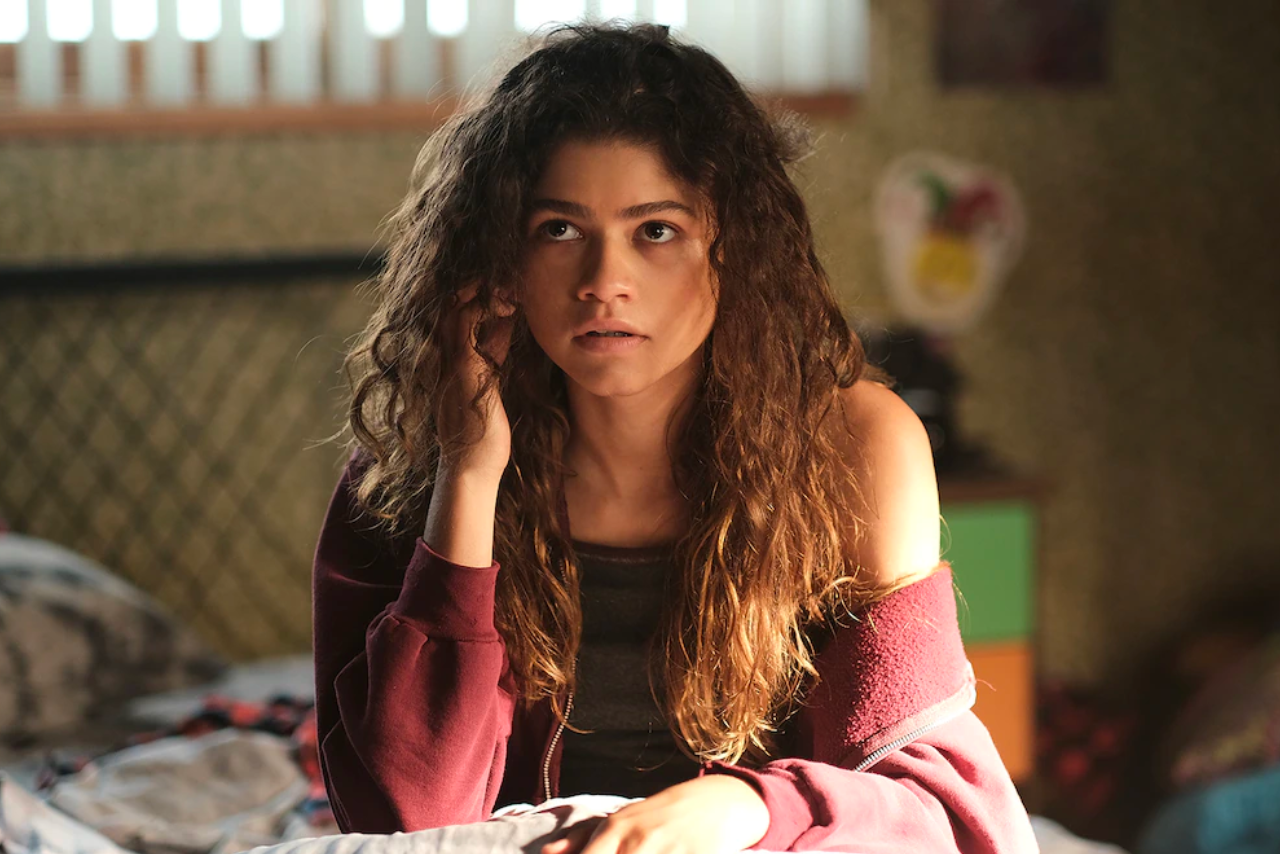From BoJack Horseman to 13 Reasons Why, these TV shows tackle mental health with sensitivity, depth, and occasional flaws. Here’s a closer look at how television reflects the complexities of mental illness.
Through the powerful mirrors of our collective consciousness, visual media provides a unique space for empathy, allowing viewers to see the inner struggles of characters as more than just diagnoses, but as deeply human experiences. These representations are important not only for raising awareness, but for normalizing conversations around mental health, breaking down stigma, and offering solace to those who see their own pain reflected on screen. Yet, beyond education or empathy, these mediums possess a unique strength: they allow us to experience emotions in a safe space, to confront the shadows of our minds through the eyes of another. When mental health is explored with sensitivity and depth in film or television, it becomes more than just a plot device, it becomes a bridge, connecting individuals to the universal truths of vulnerability, resilience, and healing.
In recent years, several TV shows have emerged, tackling mental health issues in ways that are both groundbreaking and flawed. Here’s a look at five TV shows that place mental health at the forefront:
1. BoJack Horseman
Netflix’s animated series BoJack Horseman stands as one of the most profound explorations of mental health in recent television history. The show follows BoJack, a washed-up former TV star, as he spirals through cycles of self-destruction, depression, addiction, and existential crisis. What sets BoJack Horseman apart is its unflinching portrayal of depression and the lingering impact of trauma. BoJack’s struggles are raw and complex, and the show never offers easy answers or redemption arcs simply for the sake of narrative closure. It showcases how mental health issues are ongoing battles, often without neat resolutions, and explores themes like substance abuse, loneliness, and self-loathing with dark humour and deep introspection.
However, BoJack Horseman can sometimes veer too far into bleakness, leaving viewers with a sense of hopelessness. While this is intentional, aiming to reflect the often isolating nature of depression, the absence of a more balanced depiction of recovery or positive coping mechanisms can be seen as a limitation. Moreover, the show’s sardonic tone may resonate with those who have experienced similar struggles, but it can also risk alienating viewers who are searching for more hopeful or uplifting narratives on mental health.
2. Euphoria
Euphoria, HBO’s visually stunning drama, is another show that dives deep into mental health, particularly through the lens of addiction and trauma. The protagonist, Rue, played masterfully by Zendaya, grapples with addiction while also navigating bipolar disorder. The show doesn’t shy away from the harsh realities of addiction and its impact on both the individual and their loved ones. It presents an honest look at how mental illness can coexist with substance abuse, using dreamlike, surreal sequences to depict Rue’s altered states of consciousness. The intense emotionality and raw vulnerability that Euphoria presents make it a powerful representation of a young person’s struggle with mental illness in a chaotic world.
However, Euphoria has been criticized for its hyper-stylized depiction of mental health and addiction. The show’s glamorous visuals, while artistic, sometimes blur the line between authentic representation and sensationalism. The aesthetics may overshadow the more nuanced aspects of mental health, potentially reducing complex emotional struggles to a form of voyeuristic entertainment. Additionally, some critics argue that the portrayal of extreme behaviours among teenagers could be seen as unrealistic, contributing to a narrative that equates mental illness with shock value rather than providing depth and understanding.

3. Crazy Ex-Girlfriend
Crazy Ex-Girlfriend is one of the most unique portrayals of mental health, blending comedy, drama, and musical numbers to tackle serious issues like borderline personality disorder (BPD), anxiety, and depression. The show, led by Rachel Bloom’s character Rebecca Bunch, navigates the complexities of living with undiagnosed and then diagnosed mental health issues. What makes this show stand out is its refreshing candour in addressing therapy, medication, and the stigma surrounding mental illness. The show never trivializes Rebecca’s struggles, and it handles her journey with a blend of humour and honesty that feels relatable and accessible. Crazy Ex-Girlfriend also breaks down stereotypes of what mental illness “looks like,” particularly in women, showing how it manifests in daily life and relationships.
Despite its progressive narrative, Crazy Ex-Girlfriend sometimes stumbles in its tonal shifts, moving from serious mental health discussions to light-hearted musical numbers that can feel jarring. While this contrast is part of the show’s charm, it occasionally risks undermining the gravity of certain moments. Moreover, the use of a “romantic obsession” as the central plot point early in the show can be misleading, as it reduces some of Rebecca’s more serious struggles to comedic quirks before the show fully embraces her diagnosis in later seasons.
4. This Is Us
NBC’s This Is Us has been lauded for its heartfelt portrayal of familial relationships, grief, and mental health. The show delves into a range of issues, including anxiety, depression, PTSD, and addiction. One of the show’s strongest elements is its multigenerational narrative, which demonstrates how mental health struggles can be passed down through families, creating a ripple effect across different lives. The character of Randall, in particular, offers a poignant exploration of anxiety and the pressure to be perfect. This Is Us treats mental health with compassion, emphasizing the importance of therapy, support systems, and vulnerability. The show highlights that healing is not linear and that mental health care is an ongoing journey.
While This Is Us is largely celebrated for its emotional depth, there are moments when its approach to mental health feels overly sentimental, bordering on melodrama. The show sometimes presents mental health crises in a way that feels too polished, with moments of catharsis that, while satisfying for a narrative arc, may not reflect the messy reality of living with these issues. There is also an argument to be made that the show occasionally simplifies the solutions to complex mental health problems, offering emotional breakthroughs that resolve too quickly for the sake of plot progression.
5. 13 Reasons Why
13 Reasons Why on Netflix sparked significant conversation about mental health, particularly around the subjects of suicide, depression, and bullying. The show’s initial premise—a high school girl’s suicide and the tapes she leaves behind explaining her reasons—was intended to shine a light on the impact of trauma, isolation, and harassment. The show did succeed in bringing these conversations to mainstream audiences, particularly young viewers who may have felt unseen or unheard in their struggles. It also underscored the importance of understanding the signs of mental health crises and the need for support systems in schools and communities.
However, 13 Reasons Why has been widely criticized for its portrayal of suicide and its handling of mental health issues. Many experts argue that the show glamorized suicide, potentially influencing vulnerable teens to view it as a form of revenge or a way to achieve attention. The graphic depiction of suicide in the first season was also deemed irresponsible, as it violated several guidelines for depicting suicide in media. Furthermore, the show’s narrative arc, which sometimes bordered on melodrama, failed to provide a clear and supportive message about seeking help or the potential for recovery, leaving viewers with a sense of hopelessness rather than empowerment.
Television, with its ability to reach vast audiences, holds immense potential in shaping the way society understands and discusses mental health. Shows like BoJack Horseman, Euphoria, Crazy Ex-Girlfriend, This Is Us, and 13 Reasons Why have each contributed to the conversation in different ways, offering both meaningful insights and significant flaws. While some shows succeed in portraying mental health with the complexity and sensitivity it deserves, others stumble by either oversimplifying or dramatizing these issues for entertainment value. Regardless of their strengths and weaknesses, these shows have undoubtedly opened the door for further exploration, encouraging viewers to confront and engage with their own mental health journeys. The future of television and mental health representation offers a landscape ripe for deeper, more nuanced storytelling that can educate, inspire, and heal.



